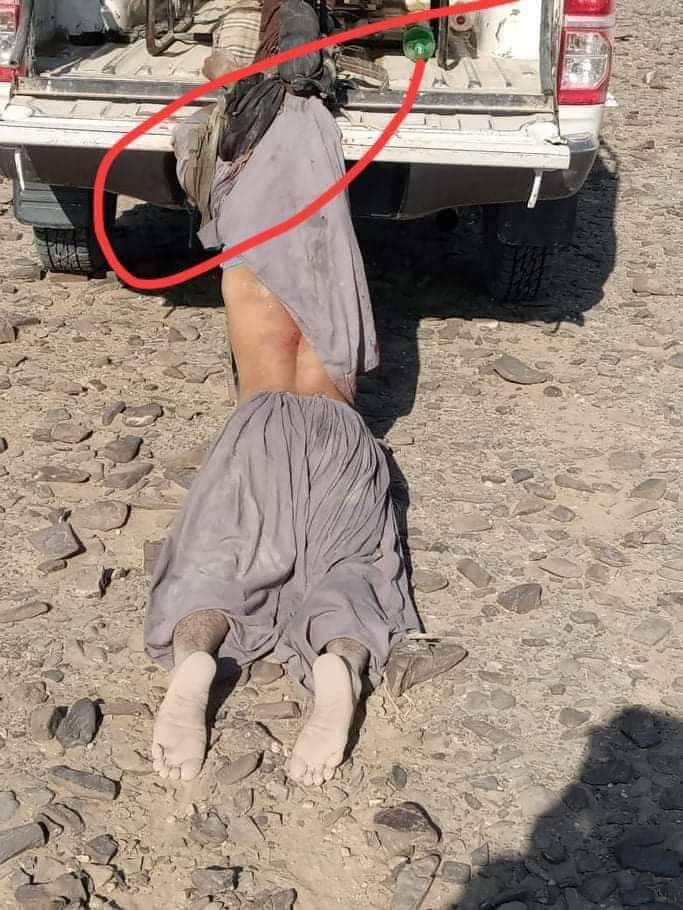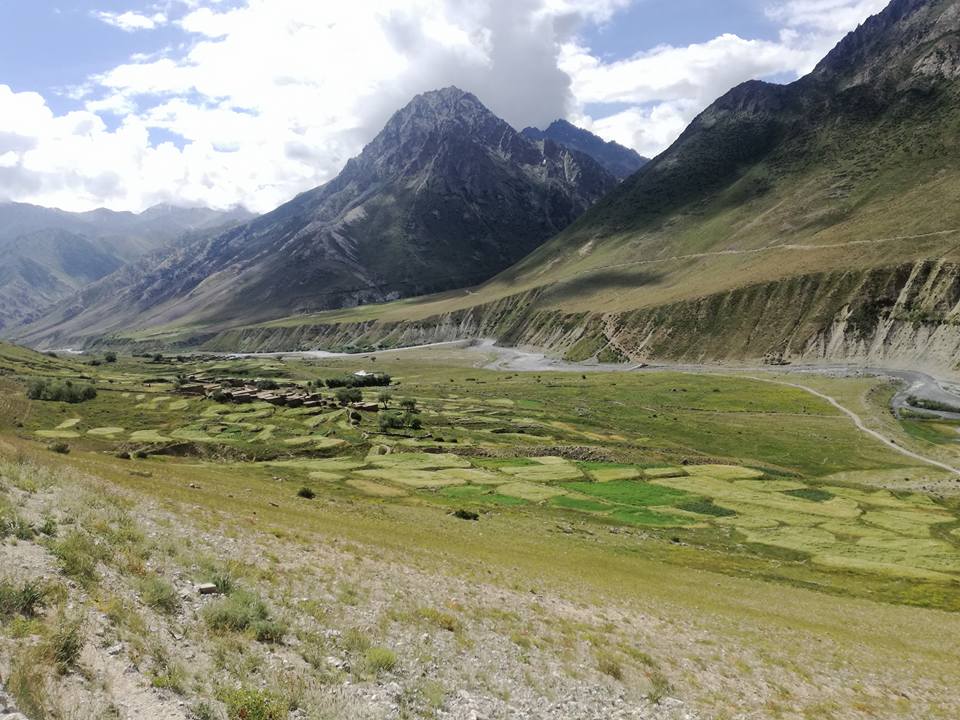Kashmir is back in the headlines. There have been back-to-back terrorist strikes in Kashmir Valley over the last few days that were followed by swift counter-terrorist operations by 21 Rashtriya Rifles (21 RR) of the Indian Army, and the J&K Police. This is enough fodder for media, both national and international, to swoon over Kashmir and question New Delhi’s ‘Kashmir policy’ through screaming headlines.
Ironically, long op-ed pieces are written about Kashmir’s internet shutdown, incarceration of local political leaders is talked about and laborious efforts made to produce justification for Islamist radicals brandishing a gun. And yet, hardly a word is written about terrorist nurseries being diligently raised in Pakistan-occupied Kashmir (POK). Feigning ignorance about terrorist camps in POK is strategic positioning by a large section of the media as this prevents any dialogue about terror infrastructure being built up by Rawalpindi so that the dominant world opinion can continue to pressurize New Delhi to remain on a back foot in Kashmir.
After Indian air strikes at Balakot on February 26, 2019 that demolished Jaish-e-Mohammed-led large terror nursery, Pakistan has now changed the base of these radical Islamic extremists. Pakistan’s new terrorist bases are in Gultari which lies in the Baltistan region of Gilgit-Baltistan. Gultari lies closer to the LOC in Kashmir Valley and it’s easier for Pakistan Army and its rogue intelligence agency ISI to sneak in Islamic radicals inside the Kashmir Valley.
Rather than talk about Gulatri being the new launch pad for Islamic terrorists and discuss about ways to demolish it, conscious efforts have begun to steer discussions towards providing a justification for the terrorist to pick up a gun. In effect, this also makes radical Islamists as role models and creates a shelf life for the terrorist even after his death. This is a well thought out stratagem.
And to further complicate matters, Pakistan Army is simultaneously running a massive military campaign replete with heavy artillery, sophisticated machine guns and helicopter gunships across occupied Balochistan against the common Baloch people.
World must understand that a spurt in Islamist terror attacks in Kashmir Valley and continuous military operation in Balochistan are both being carried under tutelage and directions of Rawalpindi. And this does not augur well for the stability of South Asian region.
How?
A deeper analysis reveals that whenever Pakistan’s economy is under stress and its domestic situation threatens to spiral out of control then it plays a safe bet by attacking Kashmir through proxy Islamists that helps divert attention of its masses. Balochistan which refuses to buy Pakistan’s Kashmir narrative is punished by systematic attacks and all those who refuse to budge are ‘disappeared’.
The terrorist attacks at Handwara and then again on the CRPF patrol party in Kashmir Valley is part of Pakistan’s strategy as it wants to divert attention of local Pakistanis from its gross mishandling of the Coronavirus pandemic. Several reports suggest that the Coronavirus pandemic has spread far and wide across Pakistan with more than 24,000 people infected and almost 2500 dead. Across the world, the number of infected people is growing at a rapid pace with each passing day.
In this scenario, when every country is grappling for ways to secure its citizens from COVID-19, Pakistan’s “selected” Prime Minister Imran Khan and the army generals have turned this pandemic into a money minting exercise. Islamabad has already secured aid worth $1.612 billion, which includes grants worth $1.4 billion from the IMF, $8 million from the US, World Bank’s $200 million and China’s $4 million. Yet, rather than utilize these funds to fight Coronavirus pandemic, Pakistan chose to fuel Islamic terrorism in Kashmir and launch military operations in Balochistan.
According to reports published by Balochistan’s Sangar Media Group, Pakistan Army had carried out more than 100 military operations in April across several parts of occupied Balochistan. More than 106 Baloch people have been abducted and ‘disappeared’. Latest reports say that during the first week of May several military operations had been conducted in Kech, Awaran and Panjgur districts of occupied Balochistan. And, these operations that “kill and dump” common Baloch people continues unabated.

Similarly, funds received as aid by Islamabad to fight Coronavirus pandemic is being used to run and instigate Islamist terror attacks in Kashmir.
It’s rather strange that Pakistan calls Islamist terrorists as “freedom fighters” in Kashmir but calls common Baloch people as terrorists. It’s high time that the world must brush up historical facts and understand that Baloch people have a genuine and just case for an independent Balochistan.
Kashmir and Balochistan: A historical perspective
During British rule, Balochistan was a separate country that had independent relations with the British government, which were entirely different from what princely states such as Jammu & Kashmir had with the British. Balochistan attained its independence on August 11, 1947 that was four days before India and Pakistan became independent on August 15, 1947. Later on, Pakistan’s political leadership due to its skewed mind-set to be seen distinct from India, began observing August 14 as its independence day. Also, Pakistan in order to expand its territorial boundaries attacked both Kashmir and Balochistan.
Soon after independence, Pakistan instigated the passions of people living in Waziristan and other adjoining areas in the name of Islam and urged Muslim tribal to attack Kashmir on October 22, 1947. These Pakistani forces looted, raped and killed millions of hapless Kashmiris, a majority of them Muslims. Thereafter Maharaja Hari Singh, the erstwhile Maharaja of Jammu & Kashmir signed the Instrument of Accession with India on October 26, 1947 after which India sent it forces to defend Kashmir. Indian Army wrested Srinagar and parts of Kashmir Valley but Gilgit-Baltistan, Muzaffarabad, Mirpur and other areas of Kashmir Valley could not be retained, which are now known as Pakistan-occupied Kashmir (POK).
Balochistan had to suffer a similar cruelty at the hands of Pakistan’s Quaid-e-Azam Muhammad Ali Jinnah.
On August 4, 1947 a large conference was held at Delhi that was attended by Lord Mountbatten, Britain’s Viceroy of India, Khan of Kalat the Baloch Ruler, Mohammed Ali Jinnah and Liaquat Ali Khan. Balochistan’s status as an independent nation was recognized by Jinnah in this conference. Despite this agreement and Balochistan’s status as an independent sovereign nation, Pakistan attacked and occupied it on March 27, 1948. Baloch people have been fighting for their independence since this day.
Pakistan wants Balochistan for its rich mineral wealth and Kashmir for the water that flows in its rivers and for its geo-strategic location.
It’s high time the world’s superpowers and UN-led institutions begin a strict audit of the billions of dollars doled out to Islamabad as aid to fight Coronavirus pandemic. If funds meant to fight the virus are used to foment Islamic extremism in Kashmir and kill innocent Baloch people then the repercussions will be felt across South Asia.

